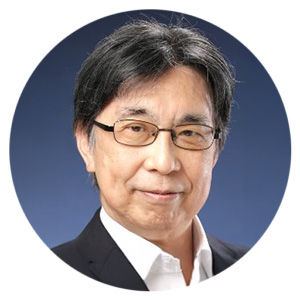1. Sugihara E, Hashimoto N, Osuka S, Shimizu T, Ueno S, Okazaki S, Yaguchi T, Kawakami Y, Kosaki K, Sato TA, Okamoto S and Saya H: The inhibitor of apoptosis protein Livin confers resistance to Fas-mediated immune cytotoxicity in refractory lymphoma. Cancer Res 80(20):4439-4450, 2020
2. Takahashi N, Nobusue H, Shimizu T, Sugihara E, Yamaguchi-Iwai S, Onishi N, Kunitomi H, Kuroda T and Saya H: ROCK inhibition induces terminal adipocyte differentiation and suppresses tumorigenesis in chemoresistant osteosarcoma cells. Cancer Res 79: 3088-3099, 2019
3. Ishizawa J, Sugihara E, Kuninaka S, Mogushi K, Kojima K, Benton CB, Zhao R, Chachad D, Hashimoto N, Jacamo RO, Qiu Y, Yoo SY, Okamoto S, Andreeff M, Kornblau SM and Saya H: FZR1 loss increases sensitivity to DNA damage and consequently promotes murine and human B cell acute leukemia. Blood 129: 1958-1968, 2017
4. Nobusue H, Onishi N, Shimizu T, Sugihara E, Oki Y, Sumikawa Y, Chiyoda T, Akashi K, Saya H and Kano K: Regulation of MKL1 via actin cytoskeleton dynamics drives adipocyte differentiation. Nat Commun 5: 3368, 2014
5. Yae T, Tsuchihashi K, Ishimoto T, Motohara T, Yoshikawa M, Yoshida GJ, Wada T, Masuko T, Mogushi K, Tanaka H, Osawa T, Kanki Y, Minami T, Aburatani H, Ohmura M, Kubo A, Suematsu M, Takahashi K, Saya H and Nagano O: Alternative splicing of CD44 mRNA by ESRP1 enhances lung colonization of metastatic cancer cell. Nat Commun 3: 883, 2012
6. Ishimoto T, Nagano O, Yae T, Tamada M, Motohara T, Oshima H, Oshima M, Ikeda T, Asaba R, Yagi H, Masuko T, Shimizu T, Ishikawa T, Kai K, Takahashi E, Imamura Y, Baba Y, Ohmura M, Suematsu M, Baba H and Saya H: CD44 variant regulates redox status in cancer cells by stabilizing the xCT subunit of system xc- and thereby promotes tumor growth. Cancer Cell 19: 387-400, 2011
7. Takahashi A, Ohtani N, Yamakoshi K, Iida S, Tahara H, Nakayama K, Nakayama KI, Ide T, Saya H and Hara E: Mitogenic signalling and the p16INK4a-Rb pathway cooperate to enforce irreversible cellular senescence. Nat Cell Biol 8: 1291-1297, 2006
8. Marumoto T, Zhang D and Saya H: Aurora A - A guardian of poles. Nat Rev Cancer 5:42-50, 2005
9. Hirota T, Kunitoku N, Sasayama T, Marumoto T, Zhang D, Nitta M, Hatakeyama K and Saya H: Aurora-A and an interacting activator, the LIM protein Ajuba, are required for mitotic commitment in human cells. Cell 114: 585-598, 2003
10. Tanabe KK, Ellis LM and Saya H: Expression of the CD44R1 adhesion molecule is increased in human colon carcinomas and metastasis. Lancet 341: 725-726, 1993.

